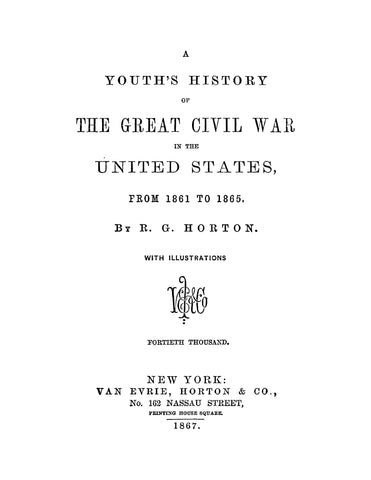
CIVIL WAR: A Youth's History of the Great Civil War in the United States from 1861 to 1865
by R G Horton. 1867. 384p
The causes of the Civil War were deeply entrenched in power struggles and ideological differences between the North and the South. The estrangement between these regions began with conflicting ideas about governance, with figures like Hamilton and Jefferson embodying contrasting views. The Adams Administration's triumph further fueled the divide, leading to the Alien and Sedition Laws that exacerbated tensions.
As the conflict escalated, issues such as the treatment of African Americans and the threat of secession came to the forefront. The deceptive actions of Confederate Commissioners in Washington, along with the Fort Sumter incident, marked the beginning of secession. President Buchanan's efforts to preserve the Union were challenged by the belief that forceful measures against seceding states would be impractical and counterproductive, as highlighted by President Madison's warnings.
The onset of the Civil War was also influenced by the abolitionists' teachings and the refusal of the Black Republican party to compromise on the issue of equality within the Union. Efforts to find a peaceful resolution, such as the Crittenden Compromise, were met with contempt by Republicans, leading to a lack of consensus and ultimately contributing to the outbreak of conflict. Senator Douglas's accusations of Republican responsibility for the disagreement underscored the deep-rooted divisions that ultimately led to the war.
